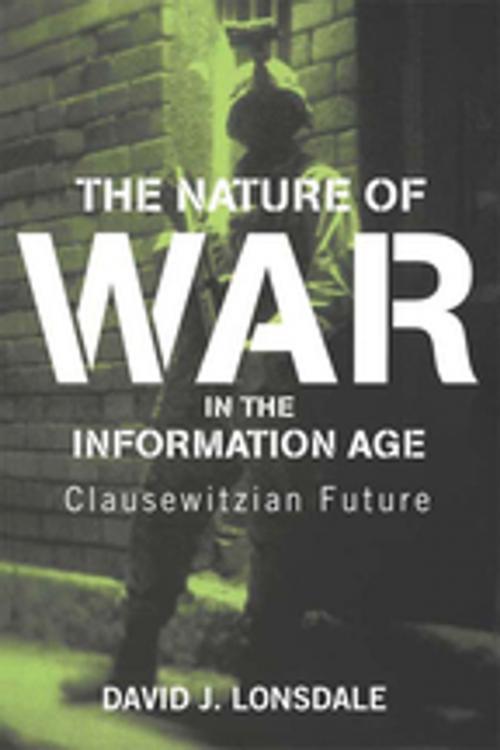The Nature of War in the Information Age
Clausewitzian Future
Nonfiction, Social & Cultural Studies, Political Science, International, International Security, History, Military| Author: | David J. Lonsdale | ISBN: | 9781135757205 |
| Publisher: | Taylor and Francis | Publication: | June 1, 2004 |
| Imprint: | Routledge | Language: | English |
| Author: | David J. Lonsdale |
| ISBN: | 9781135757205 |
| Publisher: | Taylor and Francis |
| Publication: | June 1, 2004 |
| Imprint: | Routledge |
| Language: | English |
There has been a great deal of speculation recently concerning the likely impact of the 'Information Age' on warfare. In this vein, much of the Revolution in Military Affairs (RMA) literature subscribes to the idea that the Information Age will witness a transformation in the very nature of war. In this book, David Lonsdale puts that notion to the test.
Using a range of contexts, the book sets out to look at whether the classical Clausewitzian theory of the nature of war will retain its validity in this new age. The analysis covers the character of the future battlespace, the function of command, and the much-hyped concept of Strategic Information Warfare. Finally, the book broadens its perspective to examine the nature of 'Information Power' and its implications for geopolitics. Through an assessment of both historical and contemporary case studies (including the events following September 11 and the recent war in Iraq), the author concludes that although the future will see many changes to the conduct of warfare, the nature of war, as given theoretical form by Clausewitz, will remain essentially unchanged.
There has been a great deal of speculation recently concerning the likely impact of the 'Information Age' on warfare. In this vein, much of the Revolution in Military Affairs (RMA) literature subscribes to the idea that the Information Age will witness a transformation in the very nature of war. In this book, David Lonsdale puts that notion to the test.
Using a range of contexts, the book sets out to look at whether the classical Clausewitzian theory of the nature of war will retain its validity in this new age. The analysis covers the character of the future battlespace, the function of command, and the much-hyped concept of Strategic Information Warfare. Finally, the book broadens its perspective to examine the nature of 'Information Power' and its implications for geopolitics. Through an assessment of both historical and contemporary case studies (including the events following September 11 and the recent war in Iraq), the author concludes that although the future will see many changes to the conduct of warfare, the nature of war, as given theoretical form by Clausewitz, will remain essentially unchanged.















